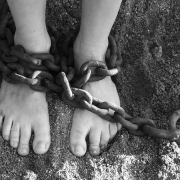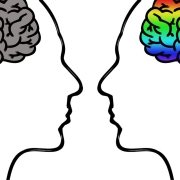
Assumptions and expectations carry the same fatal flaw – they create a preconceived notion about the future that we relate to as if it is reality. Then as the situation unfolds and doesn’t match our assumption or expectation we are caught off-guard and are unprepared for what has happened. Typically, the distance between reality and our imagined future gets filled with negative emotional reactions.
The insidious part of this is that it is usually happening without our awareness, and we end up blaming and judging others for not measuring up to our imagined reality. By setting up preconceived notions about how we want our experiences to be, we plant the seeds of our own unhappiness.
Consider the following scenario: Jane and Nash are on their third date. He picks her up in his car, they have a nice time together at dinner, go to a comedy club, and then to a bar for drinks. He invites her to come home with him away from the city where she lives. She’s caught off-guard, not on the same page in terms of where they are in the relationship, panics, and says no. He’s annoyed and sarcastically suggests she pay for their drinks, cuts the evening short, and sends her home in an Uber. Nash had an agenda – he assumed that they would have sex on their third date and expected her to say yes. When she didn’t, he was mad and acted that out by having her pay for the drinks and go home in a cab. His preconceived reality did not have room in it for her to behave any differently than he wanted her to.
How might this have looked if he wasn’t operating out of expectations and assumptions? Here are two possibilities. Had Nash been more tuned in to Jane’s reality he might have realized she wasn’t ready to take their relationship to the next level. Instead of inviting her home, he could have affirmed his affection for her and asked her how she was feeling about their relationship. Or he might have gone ahead with his invitation but been open-minded about her response. In either of these two alternate scenarios, Nash would have been staying present in the moment and emotionally open and free in relationship to Jane’s experience. His focus would be more on wanting to know her better than demanding that she want what he wants when he wants it.
Here are some good questions to ask yourself:
- Where do expectations and assumptions get in my way?
- Do I or someone I know behave in a way that is “my way or the highway”?
- Do I have any personal or professional relationships that repeatedly get snagged in misunderstandings, judgements, or a lack of cooperation? Do I see patterns of assumptions and expectations on either side that are preventing a healthy, present-in-the-moment flow in the relationship?
- In what ways do I demand that reality be the way I want it to be rather than the way it is?
- What can I do to be more trusting of my ability to adapt to the realities of my life?
Please share some of the ways that you see assumptions and expectations getting in the way in your life. By sharing our experiences, we help each other.
For further insight into mastering the art of being you, read more here. If you’re feeling social, I also provide daily wisdom and tidbits on my Instagram account. Give me a follow so we can thrive together!














